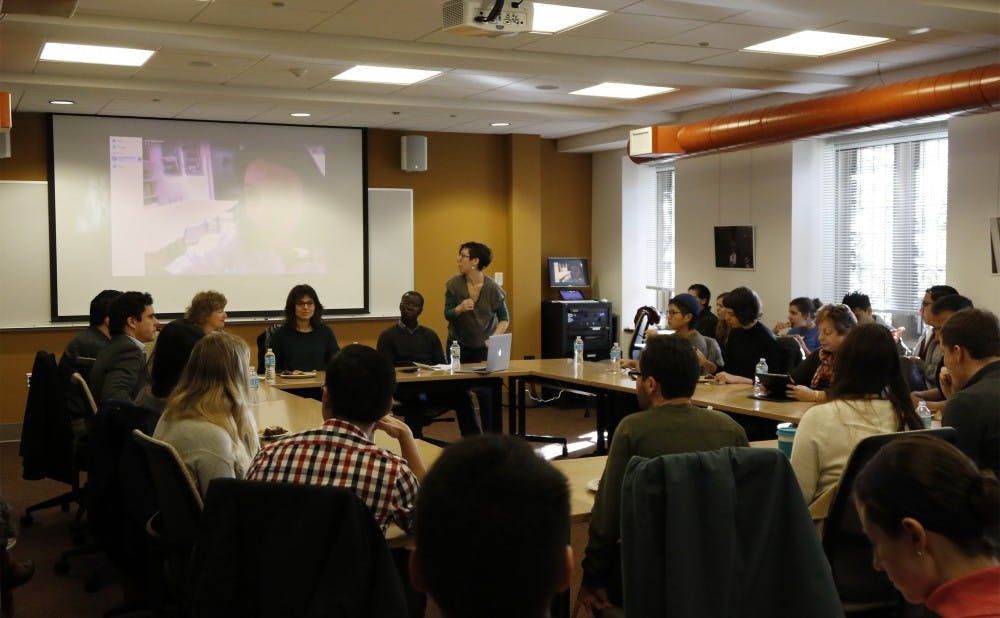Several academics gathered at Duke Wednesday afternoon to dismantle popular preconceptions about recent global terrorist attacks.
The discussion—which was sponsored by the Center for French and Francophone Studies, the Duke Islamic Studies Center and the Forum for Scholars and Publics—featured three panelists with different regions of expertise. Anne-Gaelle Saliot, assistant professor of 20th century French literature and film, explained the local context of the Paris attacks, while Zeina Halabi, assistant professor of Arabic literature and culture at the University of North Carolina at Chapel Hill, focused on the Beirut attacks. Amadou Fofana, associate professor of French at Willamette University and a visiting faculty fellow at Duke, spoke about recent terror events in Mali.
Halabi criticized the way victims of terrorist attacks in the Arab world are presented in Western media.
“The victims of the Paris attacks, the first thing we heard was everything about their individuality, we heard about their tastes, the way they look,” she said. “The first thing we heard about foreign victims of other attacks in Baghdad or Beirut or elsewhere in the Arab world was about them being political subjects.”
She said that this different treatment allowed for a kind of global mourning in the wake of the Paris attacks that did not occur following the attack in Beirut.
The assault on Paris, carried out in a series of attacks by members of the Islamic State on the evening of Nov. 13, left 130 dead and more than 350 injured. A double suicide bombing in Beirut on Nov. 12 killed between 37 and 43 people—estimates range—but received substantively less media coverage.
Halabi noted that similar attacks in Beirut have occurred for years, but that the November attack marked the first time the Islamic State group had claimed responsibility for a suicide bombing in the city.
The panel also debated the extent to which the Islamic State group can be considered a state. Each of the members said the question of whether the organization can be called a state is complex because the people who live in the areas controlled by the Islamic State group do not necessarily perceive it as a legitimate authority.
“It’s very striking because you are facing an organization that would like to see itself as a state,” Halabi said. “It has issued coins, it has issued all sorts of paraphernalia that have to do with supporting the idea of the state.”
Halabi noted that despite factors that would support its classification as a state, there are people in areas controlled by the Islamic State group who do not give it any legitimacy.
Fofana added that situation with the Islamic State group is atypical because groups usually have a geographic existence before they have a state, rather the reverse. His comments focused on a lack of economic and political development as links to terrorist attacks.
When presented with the topic of whether economic issues are a larger factor than religious ideology in influencing global terrorism, the panelists differed in their perspectives.
Fofana argued that the context of Mali—where Islamist militants killed at least 21 people in a raid on a hotel in Mali’s capital Nov. 20—is primarily political and economic, with factors that complicate the issues. Halabi and Sailot pointed to a combination of ideological and political factors as primary influencers of terrorism.
“Making sure the youth are not exposed to the ideologies of these extremist groups is a huge task,” Fofana said, noting the importance of education to combat extremist ideologies.
Senior Daniel Li noted that he walked away from the talk with a better understanding of the complex origins of these ideologies.
“Even though now recent acts of terror are making bigger waves in the news, these are not unique events for many and are often deeply linked to lengthy cultural histories,” Li wrote in an email.

